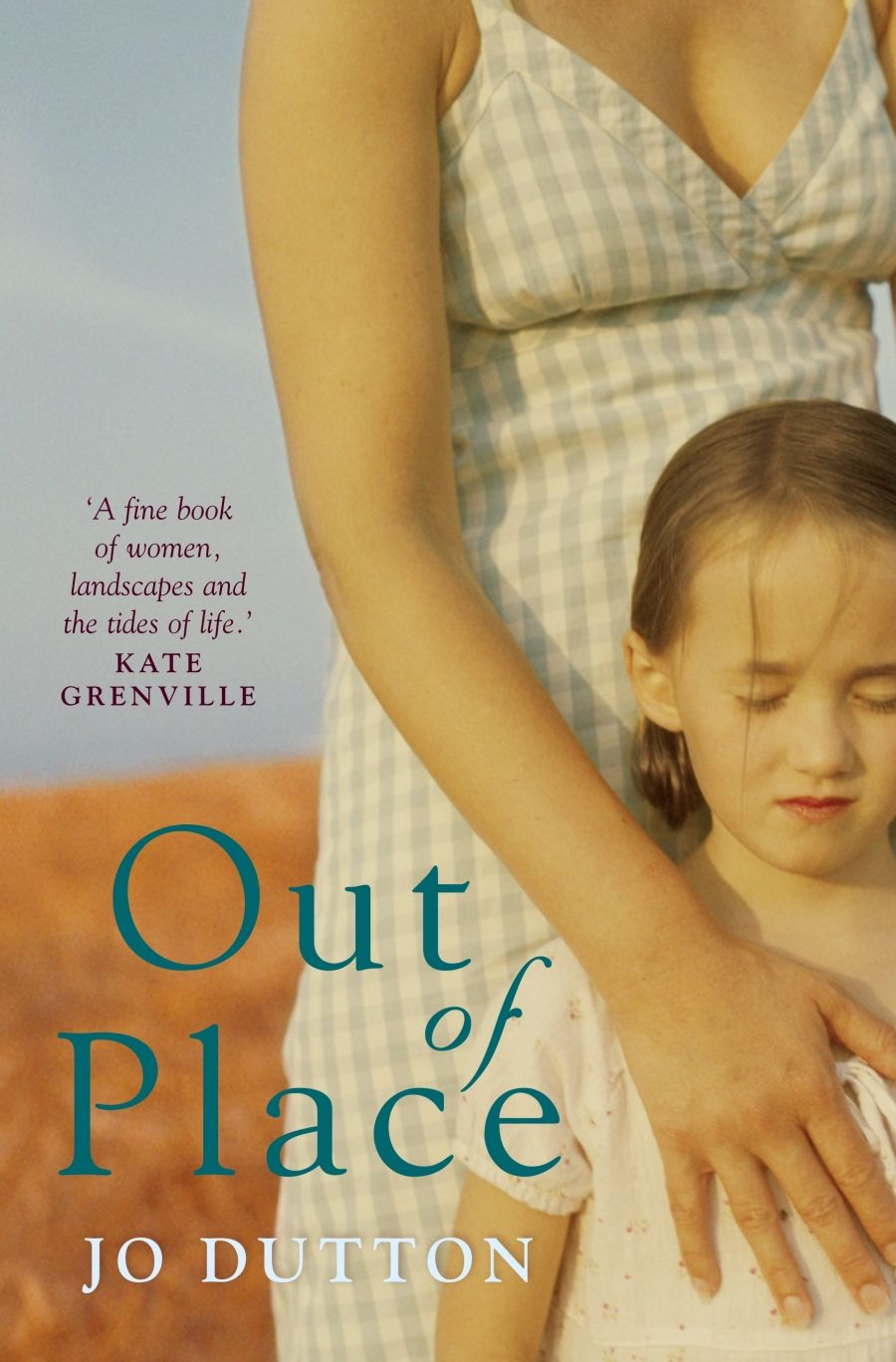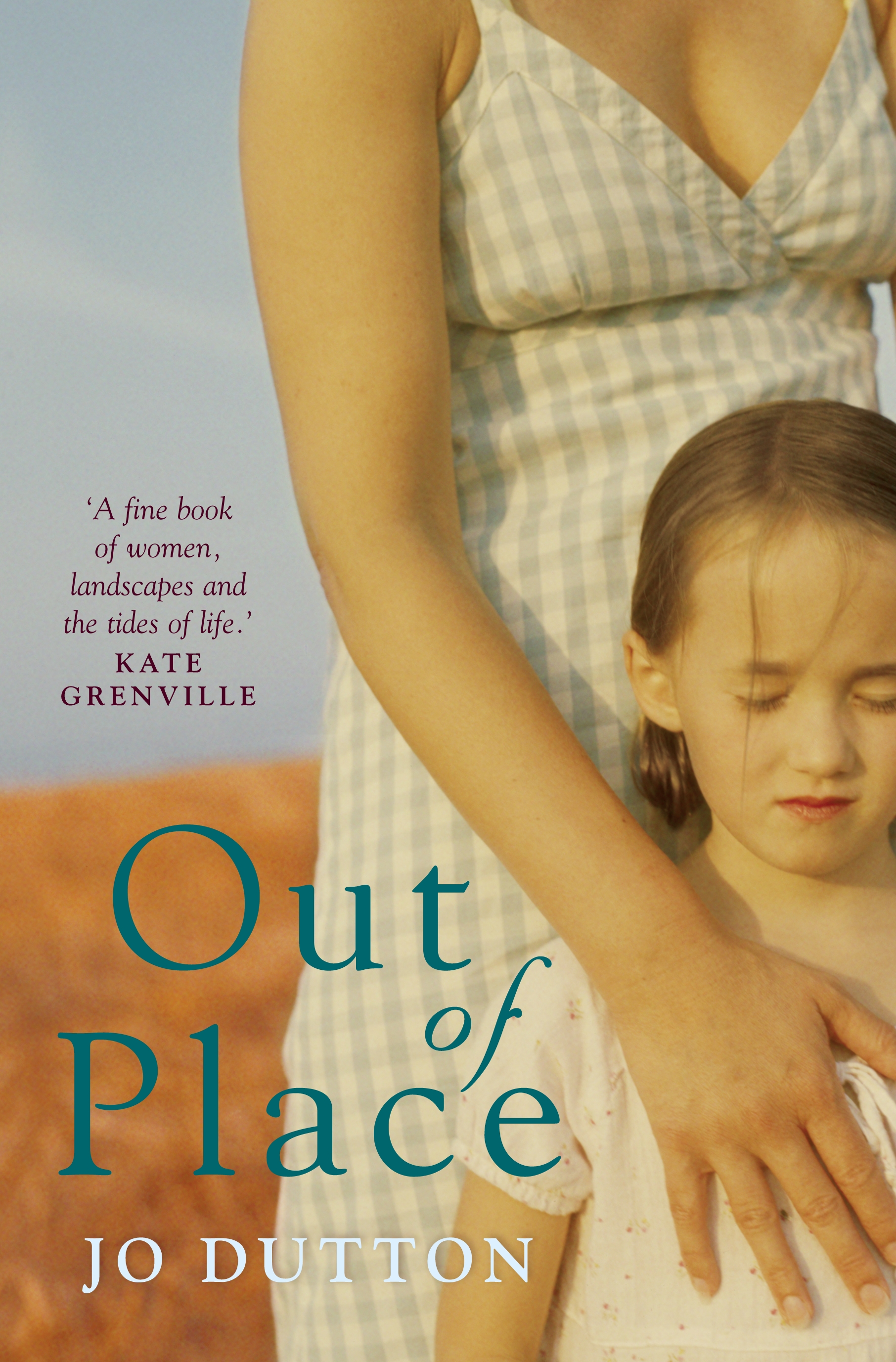
- Free Article: No
- Contents Category: Fiction
- Review Article: Yes
- Article Title: Forget the blokes
- Online Only: No
- Custom Highlight Text:
These are both second novels by previously successful authors. Each has an atmospheric sense of place and a dominant female figure. In Beyond the Break, it is the flamboyant and dangerous Irene. In Out of Place, the matriarch Eve, a postwar Italian migrant, keeps her family together through her insistence upon the traditions and the healing rituals of the old world, including especially the cooking.
- Book 1 Title: Out of Place
- Book 1 Biblio: Random House, $32.95 pb, 392 pp
- Book 1 Cover Small (400 x 600):

- Book 2 Title: Beyond the Break
- Book 2 Biblio: Fourth Estate, $27.95 pb, 293 pp
- Book 2 Cover Small (400 x 600):

Given Hall’s experience as a film critic, it is little wonder that Beyond the Break is so intensely visual and atmospheric, almost ripe for the cameras. The many references to contemporary films and the ever-present lyrics of Frank Sinatra define the mellow atmosphere of the 1950s and early 1960s. For the girls, it is a more difficult time. Steph, who had planned a university degree and a glamorous job in Fleet Street, has to settle for reporting the shipping news, climbing a rope ladder up the side of a ship, always aware of male eyes watching her progress, or looking up her strictly-for-business skirt.
Hall takes a risk with her violent and dramatic first scene. Set not in Sydney but in Vermont in 1985, it is the climactic moment of the novel. By placing it first, Hall ensures that its ambiguity permeates everything that has preceded it or follows it in time, including the halcyon dreams of the 1950s. Steph and Annie have been friends and rivals since they first competed in a Sydney swimming baths. Thirty years later, Steph, alerted by an anxious neighbour, finds the decomposing body of Annie under the bushes in the garden of her home in Vermont, an empty Jack Daniels bottle by her side.
Annie had certainly hidden the extent of her depression, but perhaps Steph had seen and ignored the signs. Despite their intimacy, there had always been subliminal tensions. They had, after all, shared – and competed for – the same lover (among others). In the final section, ‘Sydney 1985’, Steph, newly divorced, returns to Sydney seeking an explanation for Annie’s suicide and for what she suspects to have been her own shortcomings, and makes some surprising discoveries. Annie, it seems, was always in dangerous waters; always way out ‘beyond the break’.
The most impressive character in the novel is Irene, Annie’s mother, an extravagant figure with a flamboyant sense of dress and behaviour. In an unforgettable scene, having taken the girls to a Sinatra concert, Irene, in her usual outrageous get-up, rises up from the crowd and sings along with the master:
She knew all the words and managed all the tempo changes … Only once did she slip up – in The Lady is a Tramp. When he sang: ‘She’s broke …’ Irene let rip with a hearty ‘that’s oke!’ only to find he’d ditched the phrase …
‘I hate you,’ said Annie when at last she sat down.
‘Of course you do, love. You’re your father’s daughter. Born without any sense of how to have a good time.’
Irene interferes with every aspect of Annie’s life and, more importantly, repeatedly beats her. Annie will, in time, assault her own daughter. Irene is an awful character but, with her immense vitality, her encyclopedic knowledge of films and her addiction to ‘the pictures’, she could perhaps, in better times for women, have become a film critic like her creator.
While Beyond the Break is a Sydney novel, as sophisticated and carefully showcased as the city itself, Jo Dutton’s Out of Place is sprawling and ambitious, almost as spacious as its settings. The author’s On the Edge of Red (1997) was shortlisted for the West Australian Premier’s Award in 1998, and Dutton now lives in Alice Springs. Of all its lovingly created landscapes, including the suburbs and beaches of Perth and Eve’s property Arranoo, the one that comes across with the most startling clarity is the fiery Centre around Alice Springs, with its variously primitive and beautiful landscapes.
In Out of Place, three generations of women in one family act out their love for, and rivalry with, one another, until a shocking disaster, midway through the book, changes everything. Eve is the grandmother, the Amah of the family, a migrant who has married Peter and, with him, established Arranoo. She plants a vineyard and an olive tree for each lost family member. Another olive tree is planted and flourishes in the afterbirth of each child, as it arrives. The activities of Arranoo – the grape harvest, the drying of the tomato crop and the olive picking – give an almost mythical sense to the seasonal round, especially when set against the transience and conflicts in the lives of Eve’s descendants.
Eve’s one child, Nina, is an artist in an unhappy marriage with a Perth academic, with whom she has two daughters, Jasmine (Jazz) and Ella. Jazz eventually becomes a nurse in the Alice Springs Hospital and takes an artist lover, Anna. Ella seems lost after the family tragedy, but is eventually saved by a ritual return to Arranoo and a renewed interest in her own art.
The novel is ambitious in its attempt to convey the emotional interplay of all these characters over such a long timespan. The first and last sections, though perhaps a little drawn out, demonstrate Dutton’s capacity in this direction. The central section however – dealing with the family tragedy – slips all too often into melodrama. Understand-able, I suppose, in view of the circumstances, but this section could well have been compressed. Its emotional intensity would have been heightened. In the meantime, a family that has been almost destroyed by its tragedy is healed by the strength of its women. Led by Eve, the three generations of the family and their friends – a number of the group are lesbians – redeem the times. They are strong and passionate, and each, in her own way, is an artist. You can forget the men. Out of Place, however, is a rather strange title for a novel that is so obsessed with place and its influence on the lives of its people.


Comments powered by CComment